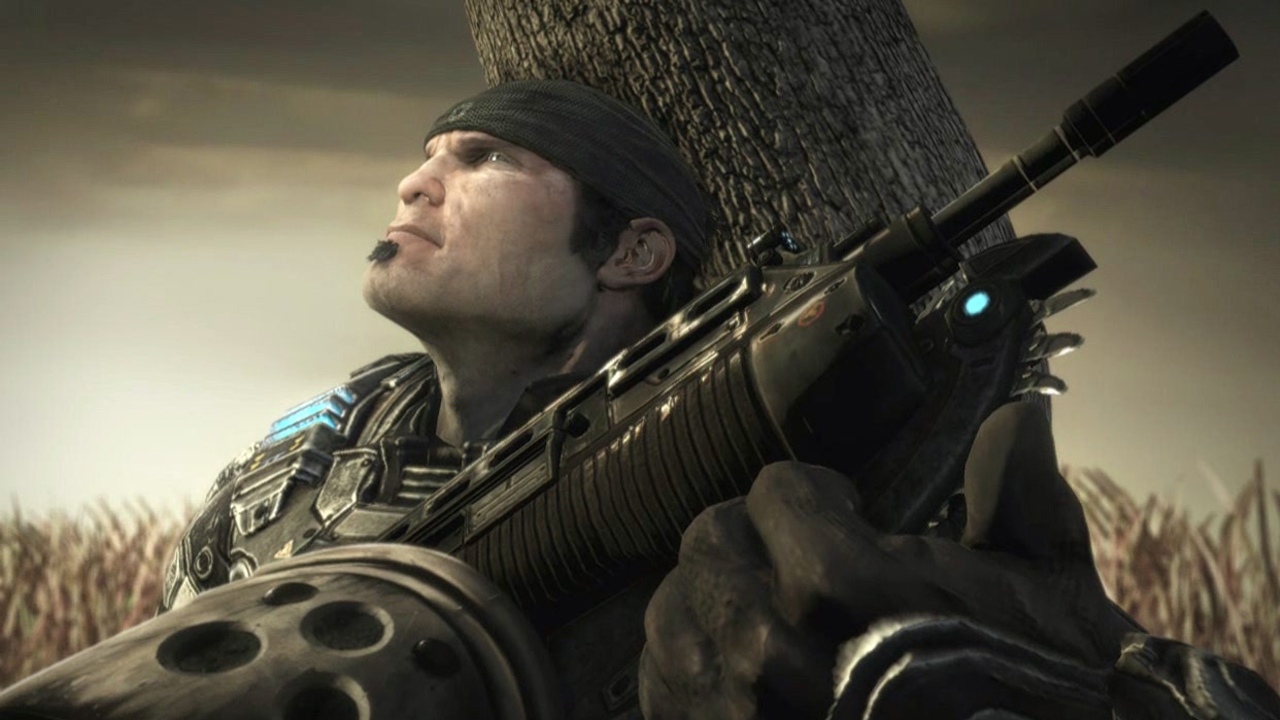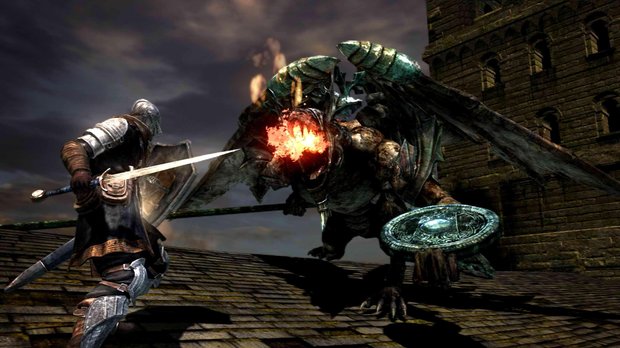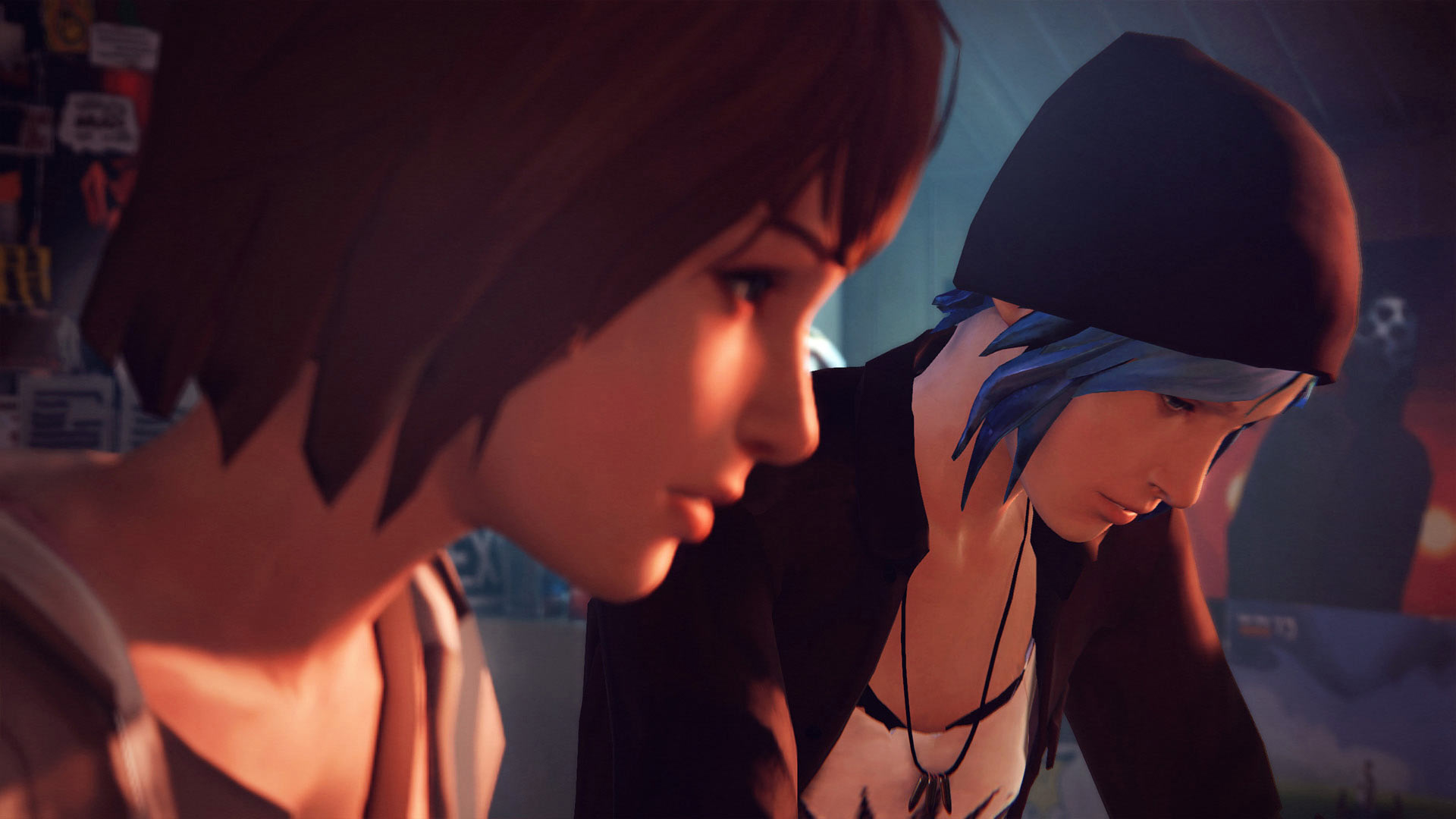AAA games can tell great stories, but why don't they hit me emotionally?
Point of fact: video games are the only major medium never to flick my sob switch. Now I won’t unleash the water works over just anything. In fact, I'm not much of blubberer at all. I'm actually more of the 'onion-eyed' type, occasionally shedding a single tear a la that sad-eyed Native American man trudging along the highway. That being said, the further I get from my cynical teenage days, the more I seem to notice myself becoming emotionally invested in my media.

We're mainly talking about movies here, though television, literature and even music have all been known to hit me for six. So, why not video games? What's so special about these virtual worlds that renders them incapable of tugging at my tear ducts?
Well, my initial impulse is to lay the blame on gaming's artificial actors - i.e. those characters who occupy the 'uncanny valley' between believable humanity and queasy facsimile. As anyone who's witnessed a wonky spot of CGI can tell you, the difference between getting people 'right' and 'almost right' can be absolutely massive. It just so happens that we as humans are pretty darn shrewd at separating flesh and blood beings from electronic fakes - something that's sure to come in handy when an army of buff, 30-something Schwarzeneggers eventually tries to gain entry to our subterranean hovels.
For my money, this sense of unease might have everything to do with the way in which we’re wired up to engage with others. In cold, evolutionary terms we’re all out to find the healthiest looking mates to roll around in the hay with. As such, tangible vitality is king. It’s why we’re spooked by dead bodies, or taken aback when we catch a shop mannequin in the corner of our eye. Their comparative lack of vitality triggers an instinctive sense of anxiety - just as it does when viewing the waxen, dull-eyed artifice of a video game creation. Simply put, the closer something comes to believable humanity without actually attaining it, the greater our discomfort becomes.

Deliberately stylized characters, meanwhile are able to simply sidestep this issue - offering a rather more fantastical package that doesn’t trouble our perceptions. Unfortunately, just as everything from voice acting to gameplay feedback has improved over time, so it is that many AAA games now regard photo-realism as the gold standard in graphics. Could it be that the general 'unrealness' of these AAA characters is enough to disengage our investment - perhaps even at the subconscious level? Jeebus knows I've witnessed some truly beautiful things in gaming, so why aren't I engaging with them as I would seeing such things on film? This 'uncanny' explanation certainly seems promising, but what about other potential pitfalls? What if, for example, the medium simply hasn't matured enough to inspire true emotional resonance?
Hey now, put away those pitchforks folks. That wasn't intended as a slight against gaming. Indeed, the medium has spent so darn long attempting to ape film that it only makes sense to judge it by similar standards. Indeed, a truly direct comparison actually gives us mitigating factors. You see we're now around 40 glorious years into the lifetime of gaming. A similar stretch in filmmaking terms would take us into the 1930s, an era that spawned a good number of classics, yet whose output still seems somewhat hokey by today's standards. Not that the filmmakers of the era knew that, of course - they were crafting the most cutting edge entertainment of the age, just as modern-day game makers are. Who's to say then, that the likes of Uncharted might not look similarly silly given another 80 years?
Last but not least there's the tricky issue of interactivity. From one perspective, actively involving ourselves in the lives of others ought to elicit even greater sympathy. But from another, this need to progress the plot manually - i.e. by pulling the virtual levers and 'beating' a game - may actually serve to stymie the sorts of feelings formed as more passive observers. It certainly doesn't help matters that most cutscenes are locked away behind a level's toughest moments, leading to instances of pure frustration that can supersede our more wistful emotions.
Sign up to the GamesRadar+ Newsletter
Weekly digests, tales from the communities you love, and more

And that’s before factoring in the vital importance of our wacky, inefficient brains. Where a tough puzzle might tickle its critical thinking, a sterling symphony may fondle another region entirely. Alternating between the two isn’t like flipping a switch. Just ask yourself, would we have felt the death of The Green Mile's John Coffey quite so keenly had the movie prompted us to best a level of Ikaruga first?
So, is interactivity to blame? Well, that all depends. There are definitely ways to smooth the transition. How well does the game mask its artifice? Do the NPCs start to feel like broken down automatons the moment they’re done talking? Moreover, could it be said that our sense of immersion relies entirely upon our willingness to ‘remain on the ride at all times’? With the obvious exception of that one telecom van trundling along in the background of Braveheart, film actually does a rather good job of disguising its own unreality. Movies are, by-and-large an utterly linear art form, with most scenes meticulously crafted so as to maintain the suspension of disbelief. Shift the frame just slightly however, and you’ll see all manner of cameramen, key grips and starlets just farting about in the background. In essence, the malleability of video gaming allows us do just that.
What hope does immersion have when I’m able to simply pinch the camera off Spielberg’s shoulder and punt an E.T. puppet in the face? If our emotional connections really do depend upon the believability of the characters and environments around us, then surely these cardboard worlds will always be challenged in terms of resonance, in much the same way that visiting a movie set tour won’t make us feel the same way we did when we watched the movie? I really do hope that I’m wrong in this, and that in-game freedom doesn’t run contrary to a deepening sense of emotional immersion. We all want to feel things playing games. It’s a large part of the reason a lot of us play, after all. Sadly, it seems that right now, for me at least, those emotions are restricted to first-pumping euphoria and frothy-mouthed rage. Sometimes you just want a nice big sob. Is it too late to turn in my rugged man badge?

Of course, I’m talking primarily about AAA games in all of this. The likes of Life is Strangeand The Walking Dead have led to great deluges of cathartic sobs throughout the gaming community. But, being (relatively) passive, narrative-focused games, with stylised art, they by default dodge a lot of the problems I’ve discussed. If you know of any games outside of their ilk guaranteed to give my cheeks a good washing, please do let me know. What is it that works for you, and where do you stand on the issues raised? Will we start to see more expressive and emotionally impactful games as the medium develops? Let's certainly hope so.



